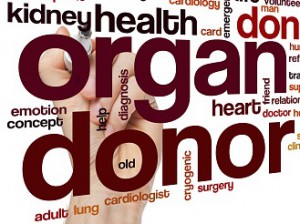An office protocol, that normally would have been grounds for termination, is now being considered for its many benefits. Several companies are now acknowledging the health benefits of a short nap during the workday, which include increased alertness, enhanced brainpower, and fewer sick days.
It is recommended that adults sleep for at least eight hours every night, however, research has shown that most individuals suffer from broken sleep and fail to get a good night’s rest. For these individuals, a short nap can help. A quick 15 to 20 minute power nap can provide the boost needed to effectively complete your workday.
There are several progressive companies, such as British Airways, Nike, Pizza Hut and Google, who are now seeking to reap these benefits. These companies have created designated nap rooms or “renewal rooms” for their employees, allowed their employees to bring a nap mat for the office, or simply encouraged their employees to sleep at their desk.
Some employers are now encouraging napping for the wellness of their employees. People who take daily 30-minute naps are 37 percent less likely to die from heart disease than those who don’t nap, according to a study published in the Archives of Internal Medicine in 2007. Naps can also boost the immune system—theoretically leading to fewer sick days—and propel employees into their most alert, energetic, and creative states, say nap advocates. Believers in this protocol feel that a well-rested employee is a pleasant employee, noting that if you’re sleep deprived, you’re going to be moody.
Napping Further Explained Naps can be broken down into four categories:
- Planned napping, also known as preemptive napping, involves taking a nap before you get sleepy. It is a good thing to do if you know you’re going to have a late night.
- Emergency napping is exactly as it sounds— taking a nap when you’re so sleepy that you can’t properly engage in your current activity.
- Habitual napping is the practice of taking a nap at the same time every day.
- Appetitive napping is the act of napping strictly for enjoyment.
- As noted, napping increases alertness, learning capacity, memory and performance— and we have known this now for several decades. Naps can also reduce stress, as well as lower blood pressure, which is important for our overall health. So, with the research and results on “power napping,” it is safe to say that a well-rested employee is a more productive employee.
All content of this newsletter is intended for general information purposes only and is not intended or implied to be a substitute for professional medical advice, diagnosis or treatment. Please consult a medical professional before adopting any of the suggestions on this page. You must never disregard professional medical advice or delay seeking medical treatment based upon any content of this newsletter. PROMPTLY CONSULT YOUR PHYSICIAN OR CALL 911 IF YOU BELIEVE YOU HAVE A MEDICAL EMERGENCY.



 Kleine Levin Syndrome (KLS) or Sleeping Beauty Syndrome is a rare neurological condition characterized by recurring periods of excess sleep. It is estimated that 1000 people worldwide are diagnosed with the disorder. Adolescent boys are primarily affected but a small percentage of adults and small children (male and female) are also known to suffer from this condition.
Kleine Levin Syndrome (KLS) or Sleeping Beauty Syndrome is a rare neurological condition characterized by recurring periods of excess sleep. It is estimated that 1000 people worldwide are diagnosed with the disorder. Adolescent boys are primarily affected but a small percentage of adults and small children (male and female) are also known to suffer from this condition.
 This week, March 20-26 is Poison Prevention Week. Did you know that every year more than 2 million poison-related injuries and deaths are reported in the United States and more than 90 percent of these cases occur in the home?
This week, March 20-26 is Poison Prevention Week. Did you know that every year more than 2 million poison-related injuries and deaths are reported in the United States and more than 90 percent of these cases occur in the home?